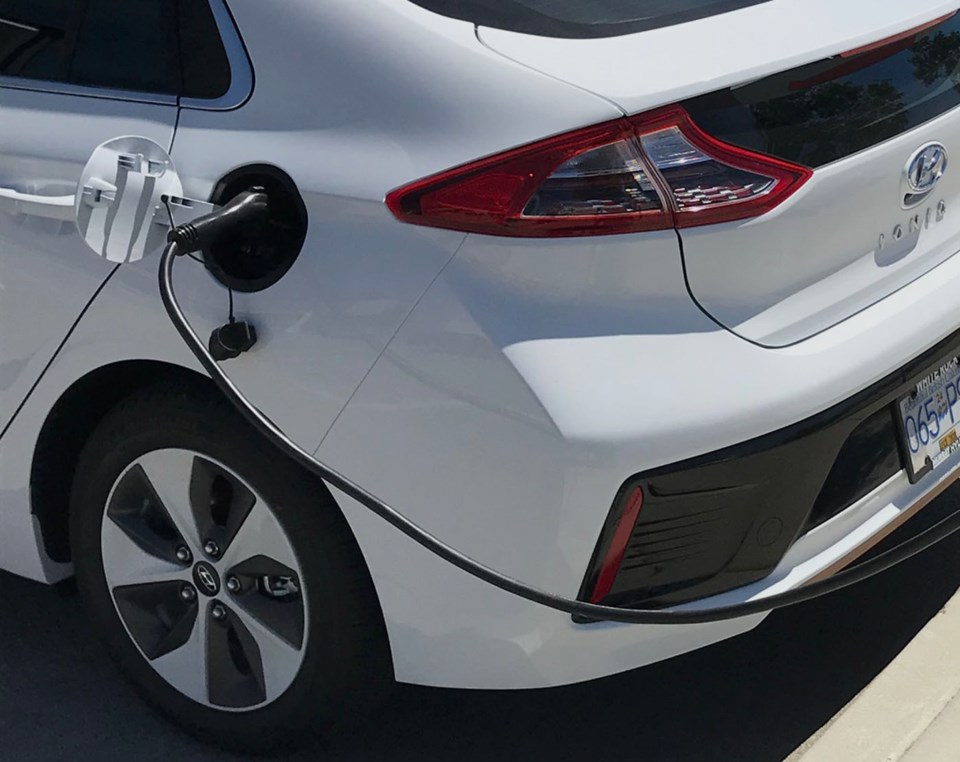It’s still free, but that will change in the coming months.
The City of Delta’s electric vehicle charging stations at civic facilities will soon have a fee for usage, but details still need to be worked out for council approval.
Civic staff, as part of 2022 budget discussions with council this fall, are to come up with recommendations for a fee structure.
The stations are currently operating at no cost for EV owners as the stations are funded from facility budgets.
“At this time, Delta-owned stations are free for public use with a maximum two-hour usage time. The intention of providing free public charging, on a temporary basis, is to encourage the adoption of electric vehicles,” a staff report earlier this year noted. “However, the stations have the capacity to collect fees in the future as determined by council. Staff are monitoring usage at Delta's charging stations and will report back to council with further details and recommendations for a fee structure that aligns with other municipalities in the region, as contemplated by the Electric Vehicle Strategy adopted by council in 2020.”
Delta's Electric Vehicle Strategy identified several actions aimed at enhancing the public charging network.
Delta has already taken a number of steps including the installation of the city's first publicly-owned charging stations at recreation facilities in 2019, as well as zoning bylaw regulations requiring a percentage of parking stalls in residential buildings to support EV charging.
Delta has been operating 10 of its own Level 2 charging stations at public facilities and installation is underway on another 20 stations.
The city also applied for funding to install additional Level 2 stations and a DC Fast Charge station at public facilities.
Council also recently endorsed a staff recommendation to apply to the Natural Resources Canada Zero-Emission Vehicle Infrastructure Program to help fund charging stations for Delta’s municipal fleet.
The proposed fleet charging project would include 10 Level 2 electric vehicle charging stations located where fleet vehicles are parked overnight.
Meanwhile, the province has announced new rebates to help fund the purchase and installation of EV chargers in homes and workplaces.
The Go Electric EV Charger Rebate program provides a rebate up to 50 per cent of costs, up to a maximum of $2,000, per eligible charger.
Single-family homes and townhomes can also apply for a rebate of up to 50 per cent to a maximum of $350.



